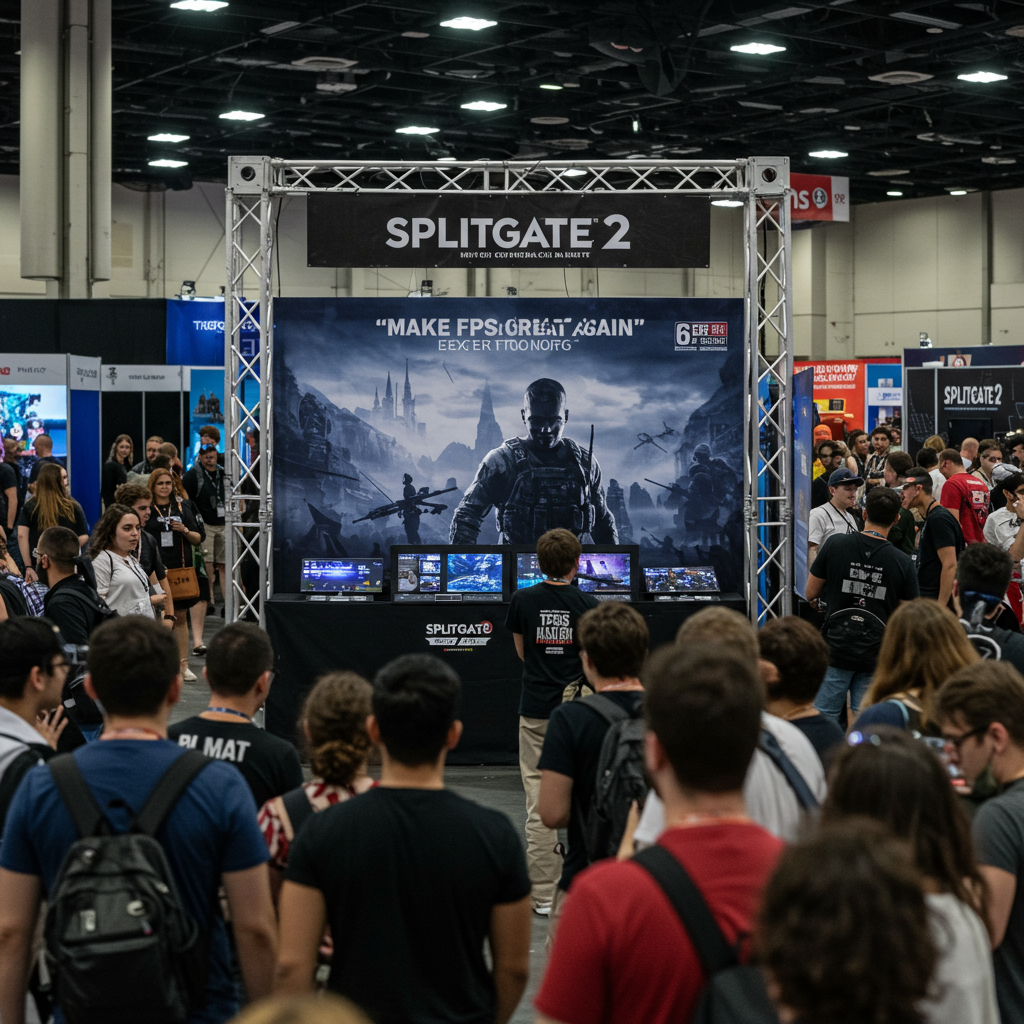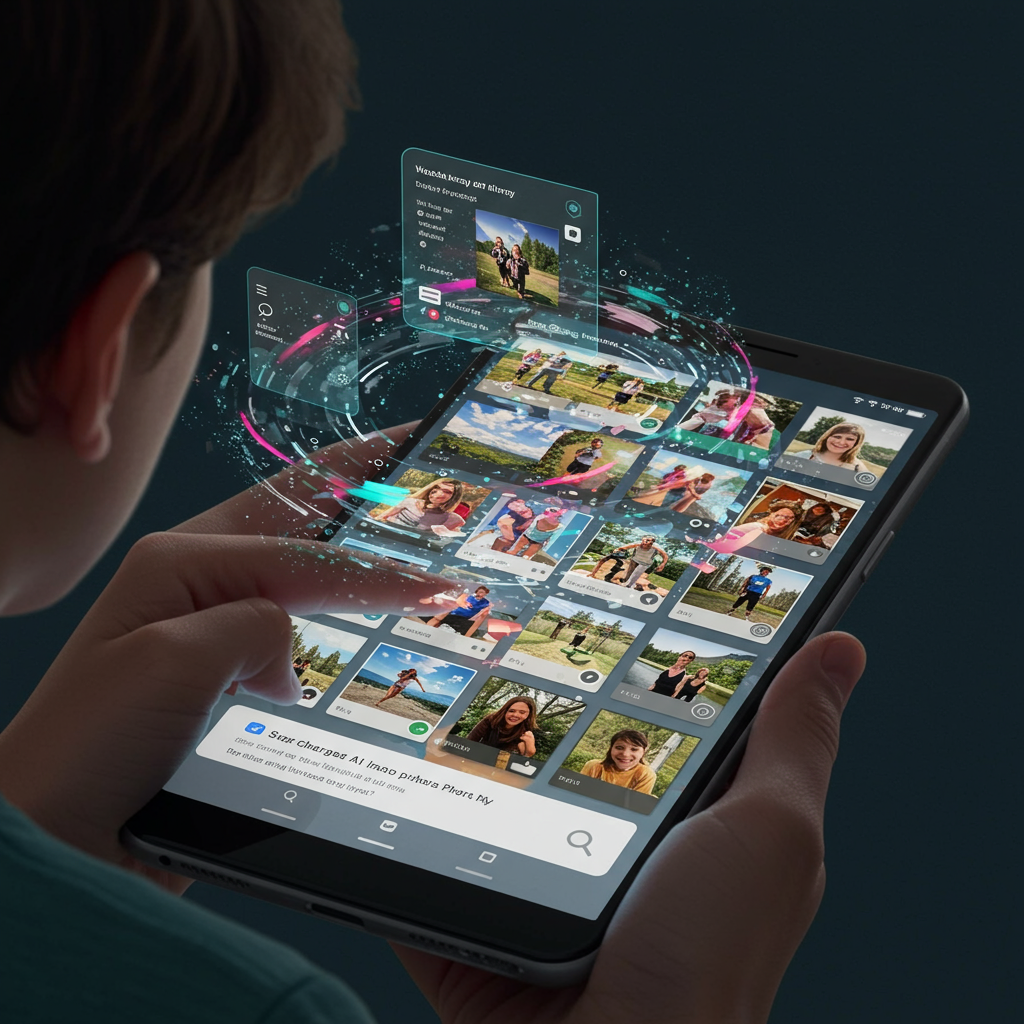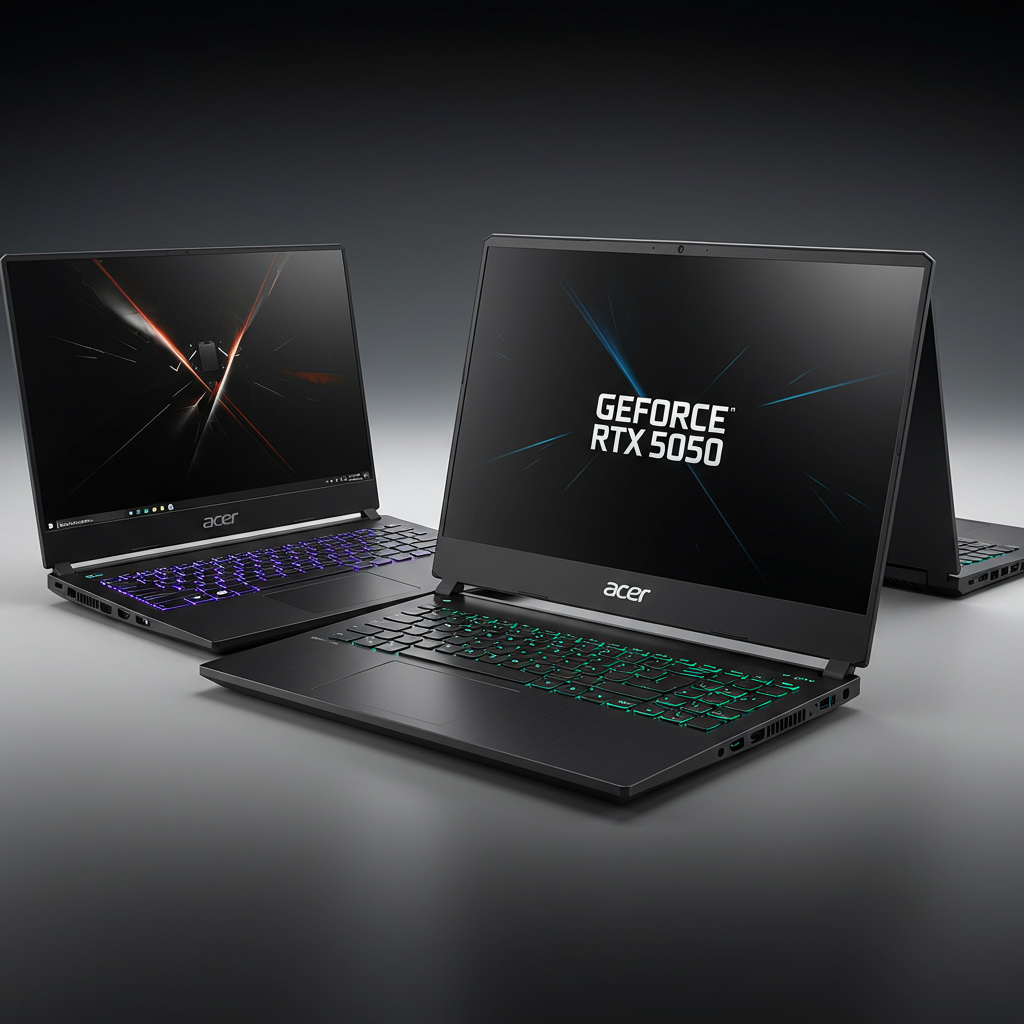Marketing Missteps in a Crowded Arena: The Splitgate 2 Summer Game Fest Controversy
Standing out in the incredibly crowded video game market has always presented a significant challenge. While the competitive landscape dates back decades, marked by intense rivalries between publishers as seen in historical accounts of the early industry, today’s challenge is amplified by sheer volume. On PC alone, platforms like Steam see thousands of new titles released annually, many vanishing into obscurity without substantial marketing muscle. For smaller studios, securing a spot on a major stage like Summer Game Fest, broadcasting live to a global audience of around 50 million, represents a monumental opportunity – one that requires careful navigation to avoid disaster.
This is precisely the scenario that unfolded when Ian Proulx, co-founder of 1047 Games, took the stage to promote Splitgate 2. His brief appearance aimed to generate buzz but instead ignited a firestorm of criticism that shook the gaming industry.
The Stunt: “Make FPS Great Again”?
Proulx’s promotional approach was certainly memorable, if ill-fated. He walked onto the stage with a baseball bat, declared his fatigue with “playing the same Call of Duty every year,” and topped it off by wearing a cap emblazoned with “Make FPS great again.” The stated goal was simple: grab attention in a saturated market. However, the execution immediately backfired.
The backlash from gamers and fellow developers was swift and pointed. Criticism centered on two key elements: the direct diss toward a major competitor (Call of Duty) and, more significantly, the use of a slogan directly appropriating the politically charged Trump/Maga meme. This political appropriation was particularly controversial, given reports of anti-ICE protesters facing arrest and beatings just across town concurrently with the event.
Response and Reflection
Initially, Proulx defended his actions, asserting the slogan wasn’t intended politically. However, four days later, he issued an apology via X (formerly Twitter), clarifying that the stunt was a brainstormed effort to capture attention because the team “needed something to grab attention, and the honest truth is, we tried to think of something and this is what we came up with.”
An Industry Blind Spot? Context, Culture, and Consequences
Commentators quickly pointed out the apparent misjudgment. In 2025’s fast-evolving meme culture, context, nuance, and sociopolitical awareness are paramount. Simply borrowing symbols or slogans without understanding their implications or history is fraught with risk. The incident drew parallels to figures like Elon Musk, whose attempts at embracing “edgelord” humor often appear dated and out of touch. Deploying a slogan like “Make FPS Great Again” carries unavoidable political baggage that cannot be simply dismissed.
Furthermore, the choice to promote Splitgate 2 – a sequel expected to feature a battle royale mode – with a narrative of being the “cutting edge savior of the FPS” struck many as contradictory, even outdated, in the current gaming landscape.
This incident highlighted what many see as a significant blind spot within the gaming industry, particularly among leadership. While studios may project a progressive image, the author suggests that a common “monoculture of middle-class men of a certain age” often exists at the top. Shared tastes and experiences within this group can lead to overlooking how marketing choices will be perceived by a broader, more diverse audience. The “seemed like a laugh” idea in a boardroom can quickly turn into a PR crisis on a global stage if not vetted with a wider perspective.
The Price of Misjudgment
The consequences for Splitgate 2 appear significant. The controversial stunt has reportedly alienated potential players on two fronts: some were genuinely offended by the political connotations of the Maga reference, while a separate group expressed frustration or anger at Proulx’s subsequent apology, viewing it as caving to perceived “woke” pressure. For a multiplayer game reliant on building and maintaining an engaged community to drive success, this dual alienation is far from ideal and could severely impact the game’s launch and longevity.
Authenticity Over Stunts: Learning from the Past
Contrast this controversial approach with some of the most memorable and effective promotional moments from past gaming events like E3. Success stories include moments of genuine humanity and enthusiasm: former Xbox chief Peter Moore proudly showing his Halo 2 tattoo, game artist Ikumi Nakamura charming the world with her infectious passion for Ghostwire: Tokyo, Keanu Reeves creating an iconic moment by sincerely calling an audience member “You’re breathtaking!” at the Cyberpunk 2077 reveal, or developer Martin Sahlin tearing up discussing his game Unravel.
These instances, rather than relying on provocative slogans or manufactured attitude, broke through the noise by showcasing authentic connection and vulnerability. In a highly digital, often anonymized industry, the most powerful asset a developer or game can wield is its humanity. The Splitgate 2 incident serves as a stark reminder that while grabbing attention is crucial, the how matters immensely, and misjudging cultural context can turn a spotlight opportunity into a damaging public relations debacle.




